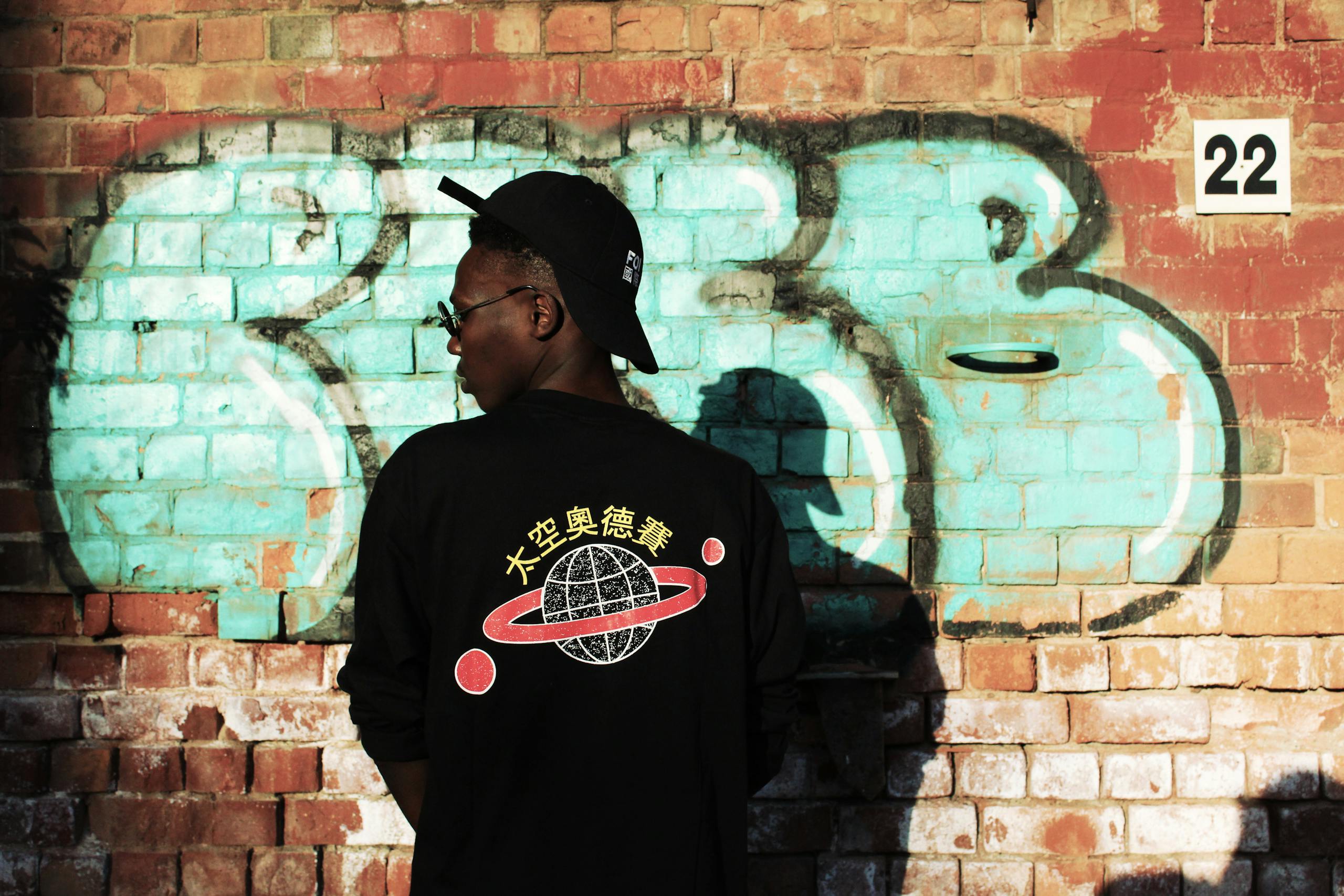If you’ve ever felt a t-shirt that seems to strike the perfect balance between comfort and style, you’ve likely encountered a tri-blend fabric.
A tri-blend is a unique mix of three materials: cotton, polyester, and rayon. Each adds its own character to the fabric. This special combination gives the t-shirt its soft feel, making it a favorite in casual wear.

The versatility of tri-blend fabric makes it a standout in the world of apparel.
Polyester adds resilience and durability, while cotton offers classic comfort. Rayon, often used to mimic the feel of silk, enhances the fabric’s silky texture and comfortable draping. These elements come together to create a t-shirt that not only feels luxurious but is also designed to last.
Tri-blend t-shirts are more than just about comfort; they’re about style and practicality too. Whether you’re looking for something to wear on a relaxing day or seeking a reliable option for customization, the tri-blend t-shirt offers what you need. It’s this fusion of comfort and style that continues to captivate fashion enthusiasts and everyday wearers alike.
Understanding Tri-Blend Fabrics

Tri-blend fabrics combine cotton, polyester, and rayon to create a material that is soft, durable, and stylish. These fabrics offer unique characteristics that make them popular for casual wear.
Components of Tri-Blend
Tri-blend fabrics are primarily made up of three fibers: cotton, polyester, and rayon.
Cotton often contributes to the softness and breathability of the material. Polyester adds strength and shape retention, ensuring durability. Lastly, rayon provides a smooth, silky feel and a lightweight quality.
Typically, the blend can be around 50% polyester, 25% cotton, and 25% rayon, but this can vary. The mix of these fibers creates a fabric that offers comfort and a unique heathered appearance, often enhancing its visual appeal.
History and Evolution
The concept of tri-blend materials emerged in the effort to innovate beyond traditional cotton fabrics.
Originally, rayon was developed as a cost-effective substitute for silk, bringing softness into the mix. Over time, manufacturers began blending polyester for durability and shape retention, resulting in the modern tri-blend.
Tri-blend fabrics became increasingly popular in the fashion industry due to their combination of practical and aesthetic qualities. They steadily evolved into a go-to material for t-shirts and casual wear, providing a desirable blend of comfort and durability.
Characteristics of Tri-Blend
Tri-blends are distinguished by their softness, lightweight nature, and durability.
Their stretch and recovery make them ideal for everyday wear, offering a comfortable fit that holds up over time. These fabrics feature a heathered look, giving the clothing a vintage or textured appearance that many find fashionable.
They are also known for drying faster than 100% cotton fabrics, making them practical for active lifestyles. This blend works well in various climates, balancing breathability with insulating properties, ensuring comfort across different seasons.
Benefits of Tri-Blend Materials
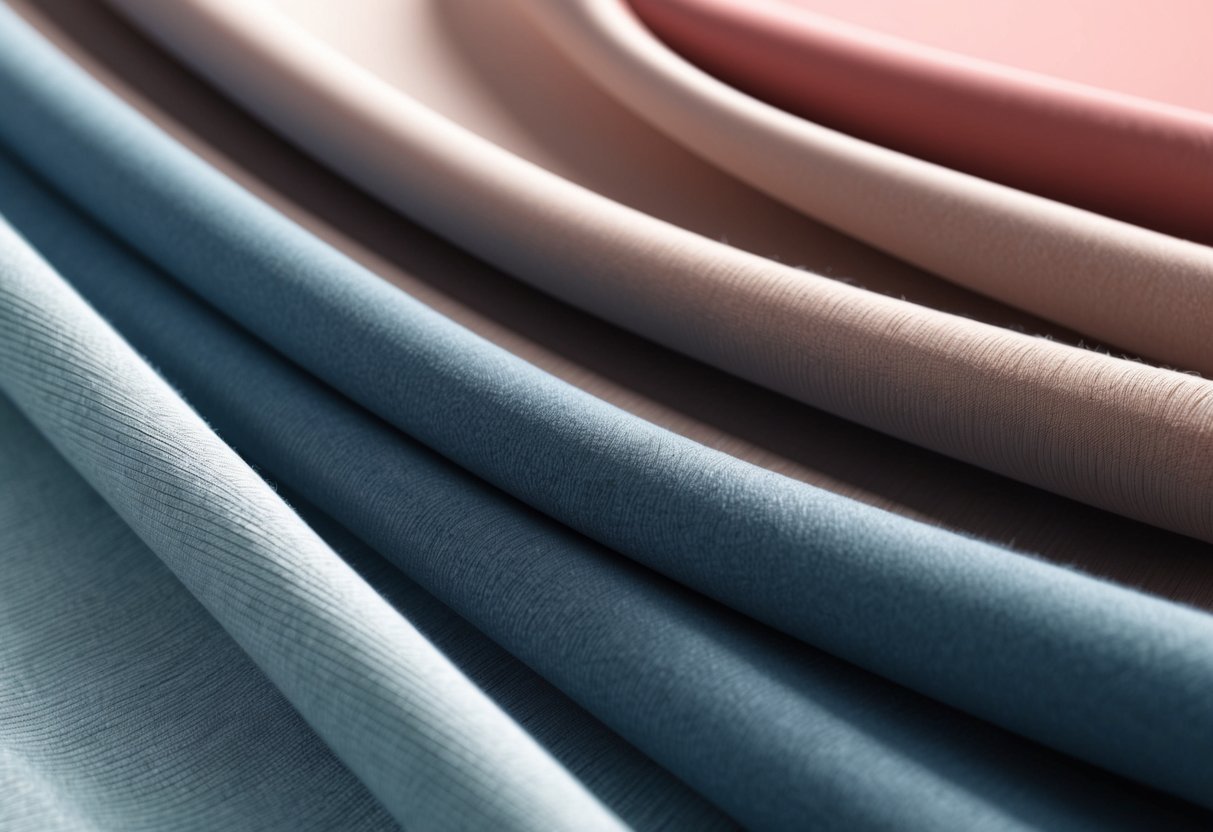
Tri-blend materials are popular for their exceptional comfort, breathability, and durability. These fabrics offer a unique combination of softness and strength that makes them desirable for various clothing items.
Comfort and Feel
The combination of cotton, polyester, and rayon makes tri-blend fabrics incredibly soft. You can expect a smooth texture that feels gentle on your skin.
Cotton provides natural softness, while rayon adds a silky texture which mimics the feel of more expensive fabrics. Polyester contributes minimal shrinkage and retains shape, so you can enjoy garments that feel new for longer. This mix ensures that wearing tri-blend is a cozy experience ideal for everyday wear and relaxation.
Breathability and Moisture-Wicking
Tri-blend fabrics excel in maintaining a cool and dry feel. The breathability of cotton ensures proper air circulation, preventing you from feeling too hot.
When it comes to moisture-wicking, polyester plays a crucial role. It quickly moves sweat away from your skin, aiding in evaporation. This feature is especially useful during exercise or warm weather.
Rayon assists by adding a lightweight and airy quality, making tri-blend a practical choice for active or casual occasions.
Durable Yet Flexible
One of the standout features of tri-blend fabrics is their durability. Polyester is tough, enabling these materials to withstand regular use without losing strength. This makes tri-blend shirts long-lasting even after multiple washes.
Despite their durability, they remain flexible, offering ease of movement. The presence of rayon adds a touch of flexibility, ensuring the fabric stretches slightly as needed. This flexibility, paired with durability, makes tri-blend an appealing option for those looking for stylish comfort without sacrificing toughness.
Tri-Blend Apparel in Fashion
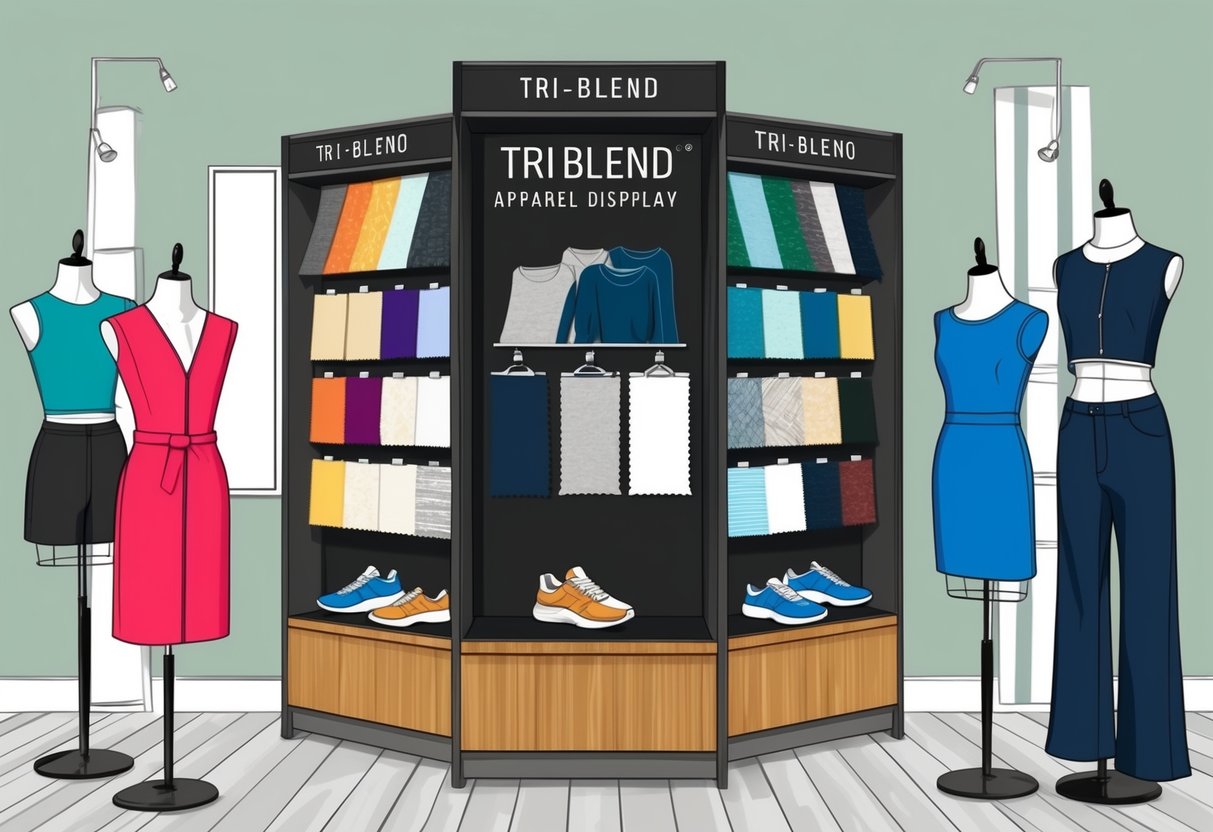
Tri-blend apparel is known for its versatility and comfort. This section explores how tri-blend t-shirts and other clothing have become staples in casual wear, athleisure, and vintage-inspired fashion. Their unisex appeal makes them a popular choice across different fashion trends.
Casual and Athleisure Wear
Tri-blend shirts and t-shirts have quickly become favorites in casual and athleisure wardrobes. The mix of cotton, polyester, and rayon makes these shirts extremely comfortable and breathable, perfect for day-to-day activities.
They often feature relaxed or fitted styles, providing flexibility for various body types and preferences.
In athleisure, tri-blend racerback tanks and scoop-neck tees are stylish yet functional. They offer the stretch and ease needed for workouts while still looking trendy outside the gym.
Whether you’re out for a jog or grabbing coffee, tri-blend apparel fits right in with your active lifestyle.
These clothes are excellent for layering. Pair a tri-blend tee with a zip-up hoodie or lightweight jacket for an easy, laid-back look.
Vintage-Inspired Trends
Vintage style is all about nostalgia and classic looks, and tri-blend apparel is perfect for this trend. These clothes often feature vintage-style prints and retro logos, giving them a timeless appeal that works well for those who love old-school fashion.
The fabric’s texture enhances this style, often giving shirts a worn-in, soft feel that mirrors true vintage clothing. You may see tri-blends in faded colors that mimic the look of clothes from past decades.
A popular choice in vintage-inspired fashion is the scoop neck and relaxed-fit, giving a more casual, laid-back feel. The blend allows for bold, graphic prints that capture that retro vibe.
Unisex Appeal
Tri-blend apparel has a strong unisex appeal, making it a great addition to anyone’s wardrobe. The unisex tri-blend designs cater to a wide range of fashion tastes, ensuring comfort and style for all wearers.
These garments come in styles like fitted tees, relaxed fits, and more, making them adaptable to various body shapes. The soft and flexible fabric is appealing regardless of gender, offering options that are not restricted by traditional sizing.
With a focus on inclusivity, the range of designs and colors available in tri-blend apparel ensures that everyone finds something they like. Whether you’re looking for a simple tee or a statement piece with vibrant prints, tri-blend clothing meets diverse fashion needs seamlessly.
Printing on Tri-Blend Fabrics
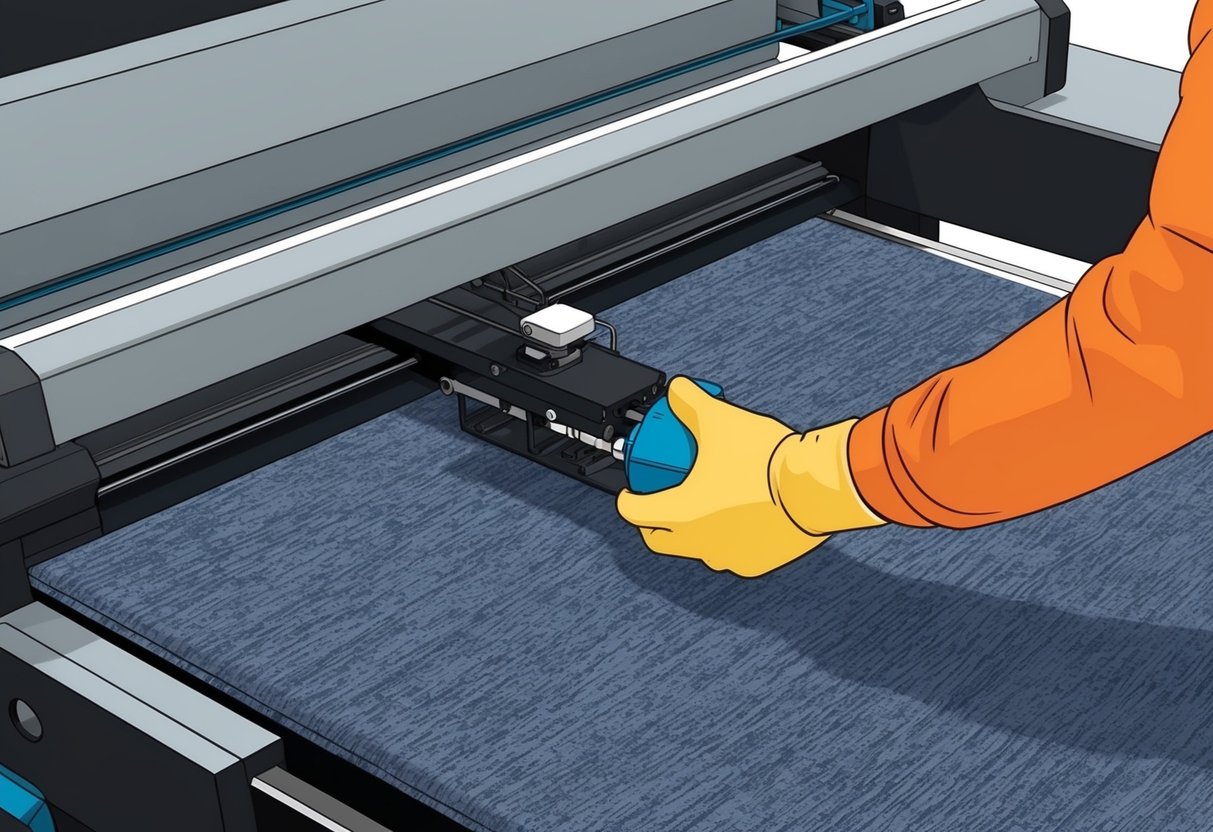
When printing on tri-blend fabrics, it’s important to understand how the unique combination of cotton, polyester, and rayon can affect your results. Different techniques and considerations will help in achieving the best outcome, whether you’re using screen printing, custom methods, or embroidery.
Screen Printing Techniques
Screen printing on tri-blend fabrics requires careful planning to prevent distortion. The blend’s stretchy nature can cause printed designs to appear warped if too much pressure is applied.
Using water-based inks is recommended because they absorb well and maintain the fabric’s soft feel.
To avoid any mishaps, ensure that the ink curing temperature is set correctly. Rayon, a component of tri-blend, may melt if exposed to excessive heat.
Custom Printing Considerations
Custom printing on tri-blend fabrics involves selecting the right transfer materials and adjusting pressure settings. These fabrics are different from typical cotton or polyester fabrics.
It’s crucial to test the printing method on a sample before proceeding on a larger scale.
Adjusting your equipment like heat press settings can help in managing the fabric’s intricacies. Make sure to use lower heat settings to prevent any damage.
Embroidery on Tri-Blend
Embroidery provides an alternative to traditional printing methods. When embroidering on tri-blend, needle size and thread type are key considerations.
Choose a medium-sized needle to minimize puncturing the fabric too harshly.
For thread choice, selecting a polyester or rayon thread will complement the fabric’s texture. Using a proper backing can provide additional support and prevent the fabric from puckering during the embroidery process.
Care and Maintenance
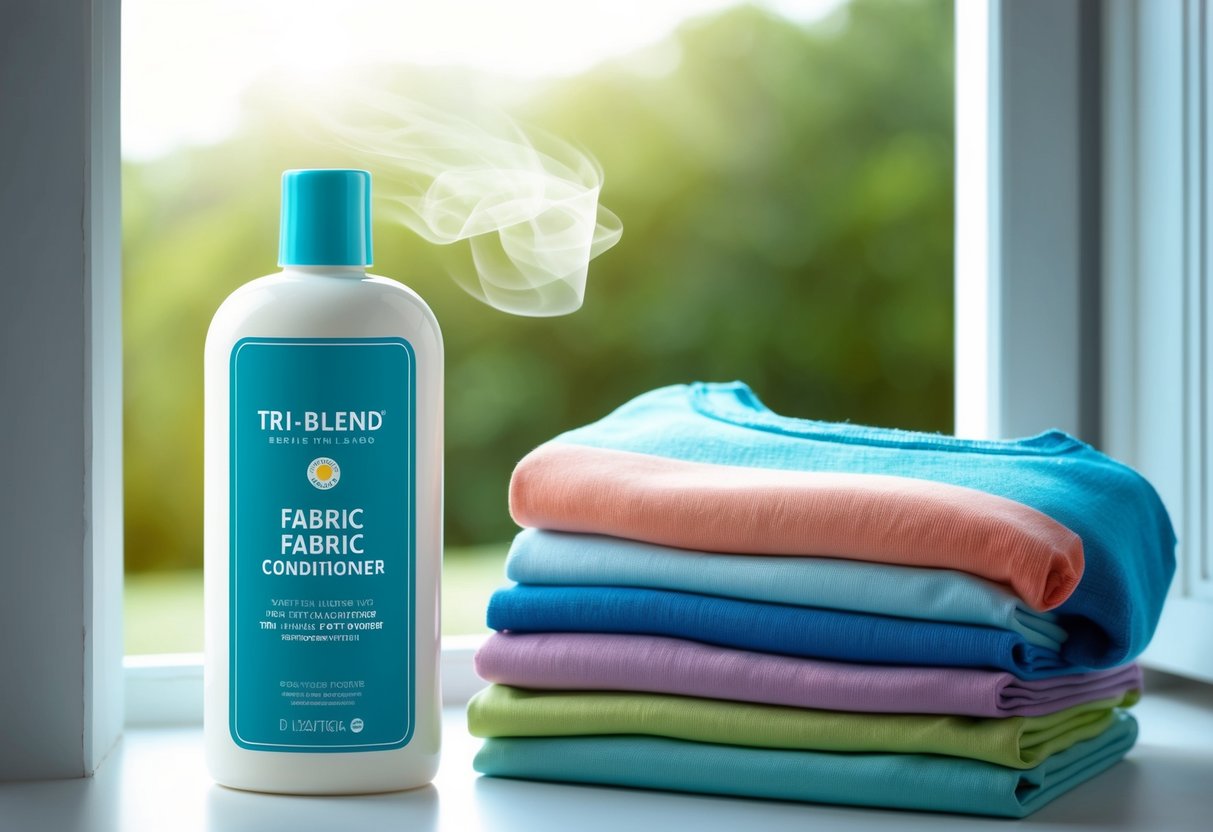
Taking care of tri-blend fabrics ensures they remain soft, flexible, and durable over time. Proper techniques in washing, drying, and storing prevent shrinkage and keep the fabric looking new. Simple steps can lengthen the life of your tri-blend t-shirt significantly.
Washing and Drying
When washing tri-blend t-shirts, use cold water to preserve colors and prevent damage. Select a gentle cycle on your washing machine to reduce wear and tear. Avoid washing with heavier garments that can cause friction.
For drying, air drying is ideal. If you prefer using a dryer, choose a low heat setting to maintain the fibers’ integrity. Avoid high heat as it can lead to shrinkage and weaken the fabric structure.
Prevention of Shrinkage
Preventing shrinkage in a tri-blend t-shirt involves careful handling during both washing and drying. The blend of polyester, cotton, and rayon in these shirts resists shrinkage better than 100% cotton shirts, but care is still needed.
Avoid hot water and high heat drying to maintain the original size. Gently reshape garments after washing while they are still damp, laying them flat to dry can also preserve the structure and minimize shrinkage.
Longevity Tips
Longevity of tri-blend t-shirts is enhanced by following a few key practices.
Rotate your wear to prevent overuse of the same shirt, reducing frequent washing. When not wearing them, store shirts in a cool, dry place away from direct sunlight to avoid fading.
Use mild detergents to clean, and add vinegar during the rinse cycle to help retain colors and softness. Minimize rubbing or stretching to keep the fabric looking great, ensuring your tri-blend t-shirts provide lasting comfort and style.
Popular Tri-Blend Brands
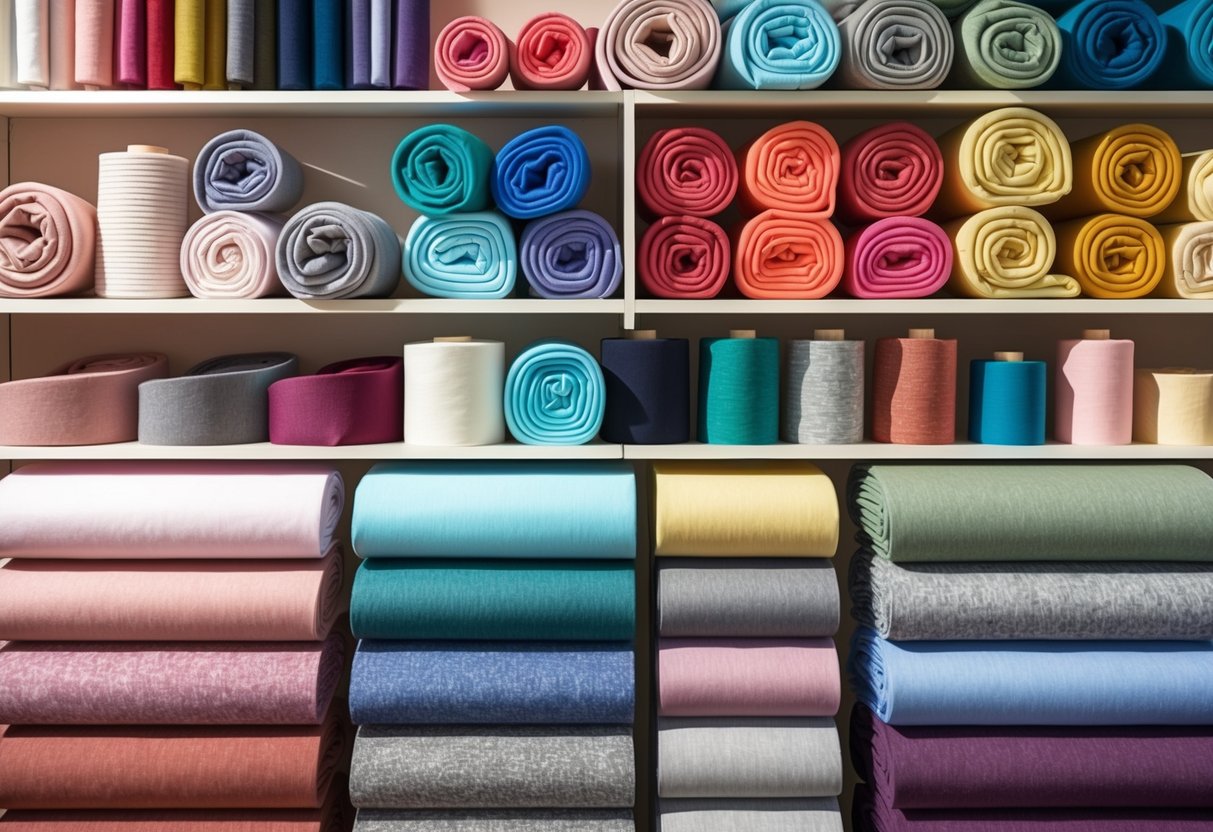
When choosing the right tri-blend T-shirt, some brands stand out for their quality, comfort, and style. American Apparel, Bella + Canvas, and Next Level are known for their unique offerings.
American Apparel
American Apparel is a well-known name in the fashion industry, especially for its tri-blend fabrics. Their shirts are not just soft and comfortable; they also have a stylish fit that many people appreciate.
The brand prides itself on the longevity of its clothing. They ensure that your tri-blend shirt will last through many wears and washes. With a focus on simple, classic designs, American Apparel offers T-shirts that can easily integrate into your everyday wardrobe.
Their commitment to manufacturing in the USA also adds an ethical appeal to their products.
Bella + Canvas
Bella + Canvas stands out for its stylish and high-quality tri-blend T-shirts. Known for their Unisex Tri-Blend T-Shirt 3413, this brand has set a high standard in the market.
Their shirts are praised for their comfort and fit. The blend of materials ensures softness and ease of wear, making it perfect for both casual settings and more polished looks. Bella + Canvas focuses on sustainable production methods, which adds value to their brand.
Their products often feature a wide range of colors, giving you plenty of options to choose from for your personal style.
Next Level and Jerzees
Next Level and Jerzees both offer reliable and comfortable tri-blend shirts. Next Level is known for its attention to fit and fashion, providing T-shirts that are both soft and stylish. Their focus on trend-forward designs makes them a favorite among younger audiences.
Jerzees, on the other hand, is appreciated for its affordability and diverse T-shirt options. Their tri-blend shirts are durable and versatile, making them suitable for everyday wear. Both brands offer an excellent balance of quality and value, ensuring you get the most out of your purchase.
Comparative Analysis
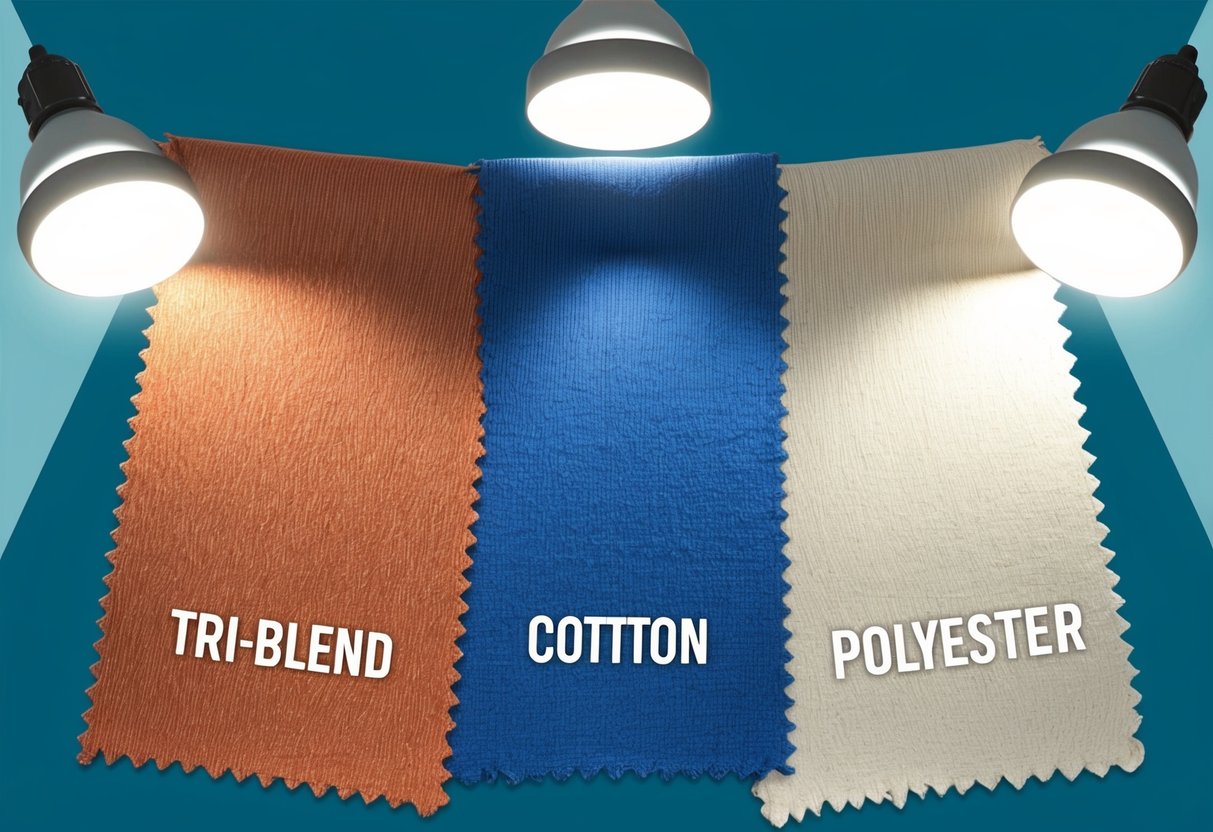
Tri-blend fabrics combine cotton, polyester, and rayon to deliver unique characteristics like drape and softness.
When comparing tri-blend with other fabric types, such as 100% cotton or polyester/cotton blends, consider attributes like feel, durability, and versatility.
Tri-Blend vs. 100% Cotton
Tri-blend tees mix cotton, polyester, and rayon, offering a silky-smooth feel with excellent drape. The blend often results in a softer and lighter garment than pure cotton.
Meanwhile, 100% cotton shirts, particularly those made of ringspun cotton, provide a softer texture than typical cotton and might appeal to those wanting a more natural feel.
In terms of durability, tri-blends resist wrinkles more than cotton, making them easier to care for. Cotton’s main drawbacks include shrinkage and wrinkling after washing. Although cotton can be durable, it may not be as moisture-wicking as polyester in tri-blend fabrics, which can be advantageous for activewear.
Polyester/Cotton Blends vs. Tri-Blend
A polyester/cotton blend mixes the breathable and soft qualities of cotton with polyester’s durability and moisture-wicking properties. This blend is often less expensive than tri-blends but may lack the same silky touch that tri-blend shirts offer.
Tri-blend fabrics excel in their lightweight nature and have a subtle sheen due to rayon.
Sweatshirts made from tri-blends keep you cozy, offering a relaxed feel with a balance of breathability and warmth. While polyester/cotton blends focus on durability and can withstand wash and wear well, tri-blends maintain a more luxurious texture over time.
Choosing the Right Fabric for Your Needs
The choice between tri-blend, 100% cotton, and polyester/cotton blends depends on your specific needs.
For a soft and drapey feel, tri-blend shirts work well. If you desire natural fabrics, cotton might be preferable. Meanwhile, for cost and durability, polyester/cotton blends could be your choice.
Consider the activity and conditions, such as whether you require a moisture-wicking garment or prefer a more luxurious texture. Each type has its own perks; tri-blend stands out in blending the best properties of its components, resulting in versatile and comfortable clothing options.
Frequently Asked Questions
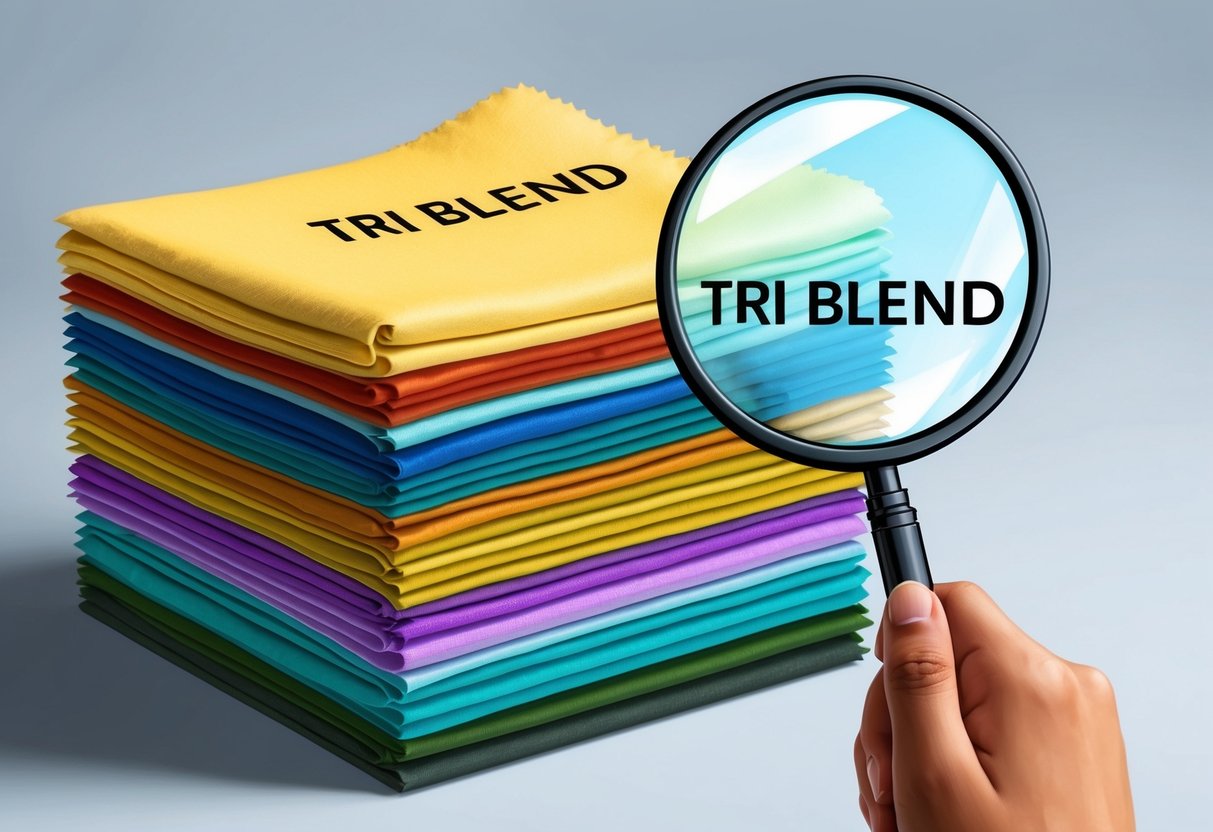
Tri-blend fabric combines cotton, polyester, and rayon, offering unique advantages. This blend impacts how it feels, its durability, and other qualities compared to 100% cotton or synthetic fabrics.
What are the differences between tri-blend t-shirts and cotton t-shirts?
Tri-blend t-shirts are crafted from cotton, polyester, and rayon. This combination gives them extra flexibility and softness. On the other hand, cotton t-shirts are made of pure cotton, which is generally thicker and may not offer the same level of softness or stretch as tri-blend materials.
Does tri-blend fabric shrink more or less than other materials?
Tri-blend fabrics are less likely to shrink as much as 100% cotton when washed. This is mainly due to the polyester content, which helps maintain the size and shape of the fabric. However, slight shrinkage can still occur, especially if the garment is exposed to high heat.
What are the advantages of using tri-blend fabric for clothing?
Tri-blend fabric is known for its softness, making it comfortable for all-day wear. It also provides flexibility, which allows for better movement. The blend of materials makes it durable, ensuring the garment retains its shape and color longer than most other fabrics.
Can you compare the breathability of tri-blend fabrics to that of Dri-Fit?
Tri-blend fabrics offer decent breathability, especially when compared to fully synthetic fabrics.
Dri-Fit, a moisture-wicking material, typically excels in breathability and keeping you cool and dry. While tri-blend can be breathable, Dri-Fit is often preferred for intense physical activities because it manages moisture more efficiently.
How does the feel of tri-blend fabric compare to cotton?
Tri-blend fabric feels soft and smooth due to the rayon and polyester blend. It often feels lighter and more flexible than cotton. While cotton is also soft, especially after washing, it doesn’t always offer the same level of smoothness and flexibility found in tri-blend clothes.
Are tri-blend fabrics more or less durable than other materials?
Tri-blend fabrics are generally more durable than pure cotton. The polyester adds strength, while the blend helps resist wrinkles and fading. Although tri-blend garments are not as durable as some high-tech synthetic fabrics, they often last longer than those made from a single material.


